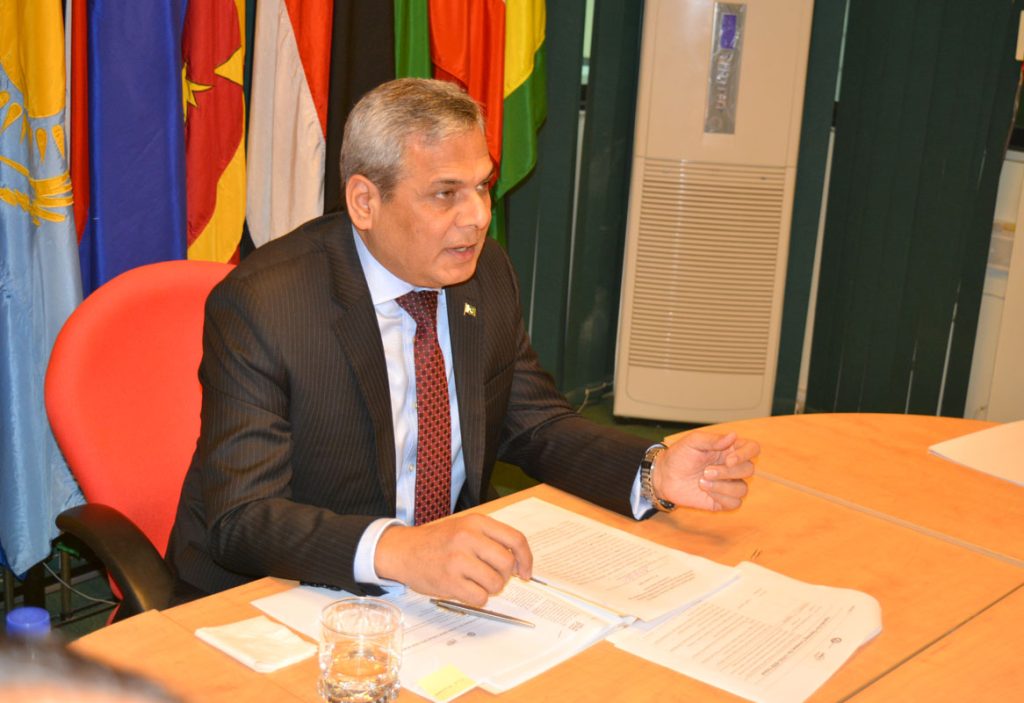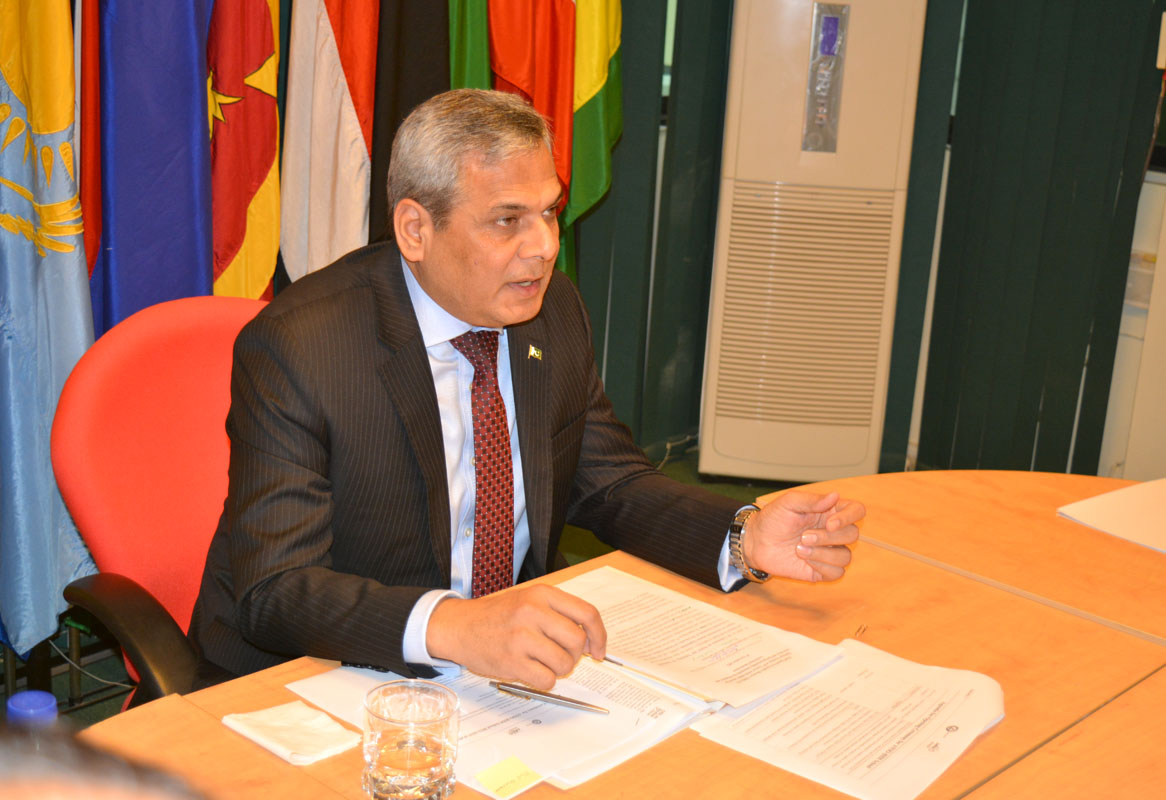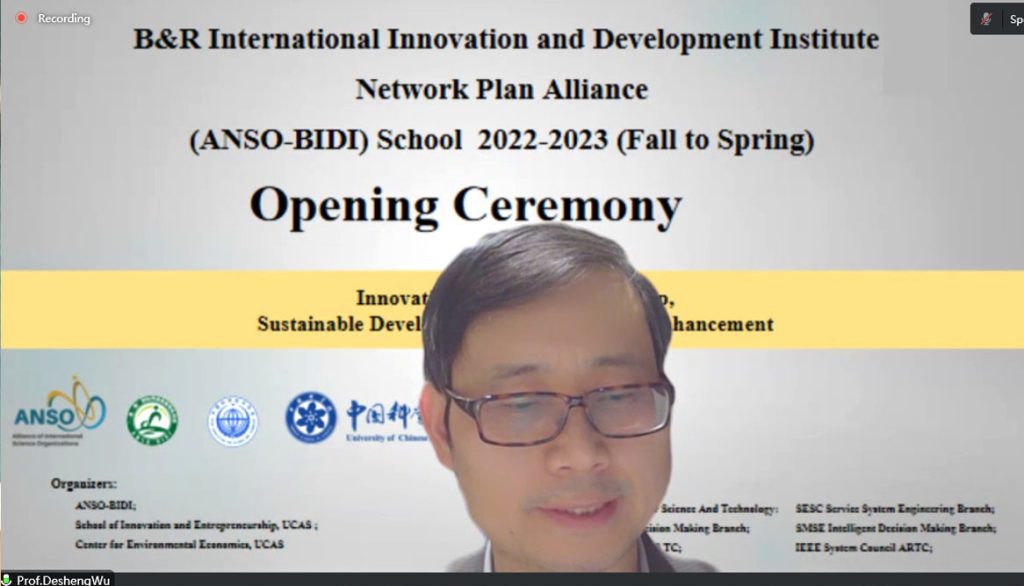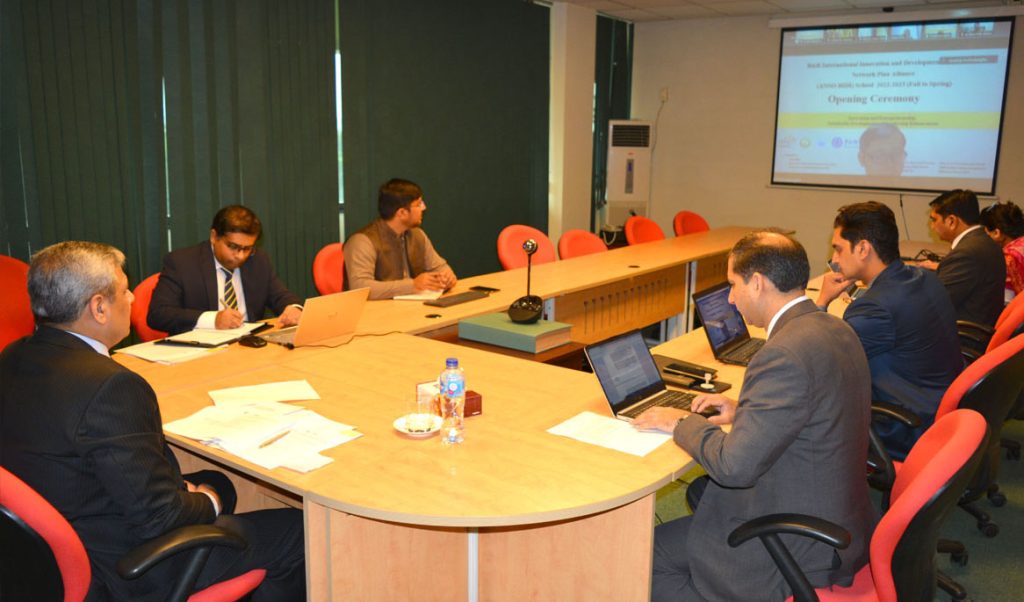Under the Belt & Road International Innovation Development Institute Network (ANSO-BIDI Institute Network), COMSATS has joined hands with the Chinese Alliance of International Science Organizations (ANSO), Centre for Environmental Economics of the University of Chinese Academy of Sciences (UCAS), and other member of ANSO-BIDI Institute Network to organize the fifth term of ANSO-BIDI School (online training) on ‘Innovation, Sustainable Development and Leadership Enhancement’ (Fall ’22).
The aim of this online training is to provide a platform to the participants of developing countries to learn about advance concepts related to business development strategies, organizational leadership, management decisions under public emergency, impact and response of epidemic on economy and society, and sustainable ecological economy, among others.
The opening ceremony of the event was held virtually on 9th November 2022 and had the virtual participation of leaders from collaborating organizations; 150 participants from across the globe, including COMSATS’ Member States of Egypt, Kazakhstan, Nigeria, Pakistan and Sudan; as well as officials of COMSATS Secretariat. The event was opened by Prof. Desheng Wu, Dean of the Belt and Road College of UCAS, Director of the Research Centre for Environmental Economics of UCAS, China, and also featured talks by leaders of participating organizations.
Speaking at the opening, Ambassador Dr. Mohammad Nafees Zakaria, Executive Director COMSA TS, opined that socio-economic development of a country largely depends on its scientific and technological prowess. In this connection, he considered technological innovations and technically apt human capital as key factors for competitiveness and growth. Ambassador Zakaria noted that the countries of the South are at a disadvantage, primarily due to the absence of well-equipped scientific institutions, technical infrastructure, research funding and necessary human capital. He considered it essential for the developing countries to make concerted efforts to develop their S&T capacities in terms of higher education, science, technology, indigenous research and development, and innovation, to bridge the widening gap between the North and the South. On the occasion, he also highlighted COMSATS’ role in facilitating socio-economic uplift of the developing countries. Ambassador Zakaria thanked the organizing committee of the event, the subject experts and trainees, as well as the leaders of the partner organizations.
TS, opined that socio-economic development of a country largely depends on its scientific and technological prowess. In this connection, he considered technological innovations and technically apt human capital as key factors for competitiveness and growth. Ambassador Zakaria noted that the countries of the South are at a disadvantage, primarily due to the absence of well-equipped scientific institutions, technical infrastructure, research funding and necessary human capital. He considered it essential for the developing countries to make concerted efforts to develop their S&T capacities in terms of higher education, science, technology, indigenous research and development, and innovation, to bridge the widening gap between the North and the South. On the occasion, he also highlighted COMSATS’ role in facilitating socio-economic uplift of the developing countries. Ambassador Zakaria thanked the organizing committee of the event, the subject experts and trainees, as well as the leaders of the partner organizations.
The ceremony was followed by first module of the training during which Prof. Philippe De Maeyer from the Department of Cartography and Geographic Information System (GIS) of Ghent University (UGent), Belgium, delivered lecture on ‘Communicating Spatial Data Cartography’.
The training has 10 weekly modules spanning over 3 months during which professors and experts from reputable international scientific and academic institutions would impart training on topics concerning subject theme. Among others, 47 trainees belonging to Member States of COMSATS, including Iran, Kazakhstan, Nigeria, Pakistan, Palestine and Syria, as well as COMSATS Secretariat are participating in the training course.








